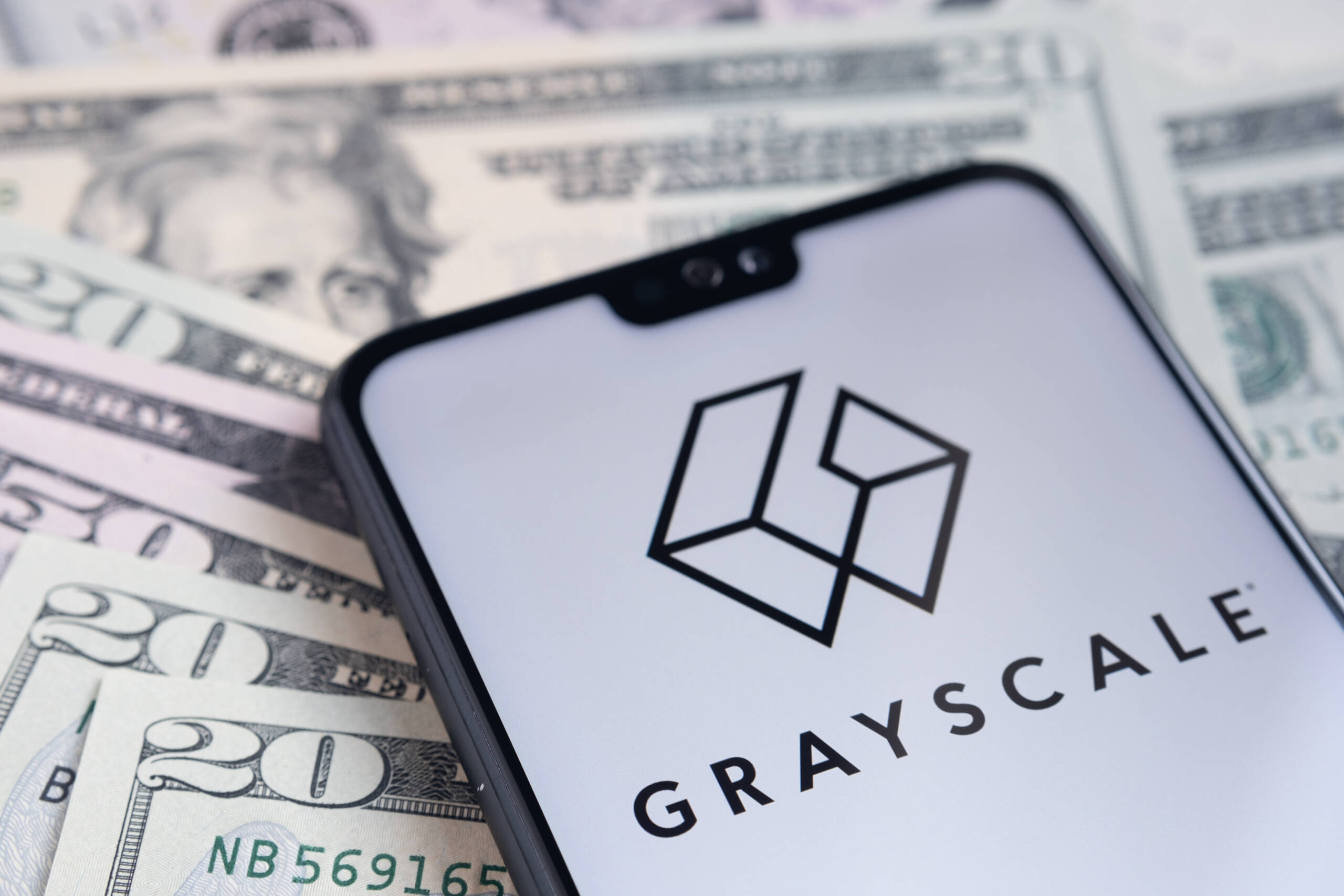The company generated approximately $44.13 million in revenue this month from its flagship Grayscale Bitcoin Trust (GBTC) and Ethereum Trust (ETHE).
Over the past two weeks, the crypto world has been jittering with excitement over BlackRock filing for a Bitcoin ETF. Various other asset managers also flocked in with ETF applications, boosting market sentiment enough to keep Bitcoin above $30,000.
Grayscale, a leading digital currency asset manager, has benefitted from this improved sentiment. Data from The Block shows that the company generated approximately $44.13 million in revenue in June 2023 from its flagship Grayscale Bitcoin Trust (GBTC) and Ethereum Trust (ETHE) – the highest numbers since May 2022.
What is GBTC and ETHE and how do they differ from ETFs?
Grayscale Bitcoin Trust (GBTC) is a security that gives investors exposure to Bitcoin without them needing to buy and store it directly. The Ethereum Trust (ETHE) is similar, but for Ethereum.
There are a few key differences between Grayscale’s products and ETFs – the first being structure. GBTC and ETHE are structured as trusts, while ETFs operate as funds. As trusts, GBTC and ETHE hold the actual cryptocurrencies as their underlying assets. Investors can then buy shares in the trust, which represent ownership in those assets.
ETFs, on the other hand, hold a portfolio of various assets, such as stocks, bonds, or commodities. ETFs issue shares that represent proportional ownership of the underlying portfolio, allowing investors to gain exposure to a diversified range of assets.
GBTC owns over 3.4% of all Bitcoin currently in circulation. As of February 2022, each share of GBTC was backed by 0.00092896 actual Bitcoin.
One important difference between Grayscale’s Bitcoin and Ethereum trusts and traditional ETFs is the redemption process. ETFs typically have a mechanism that allows authorized participants, like large institutional investors, to create or redeem shares directly with the fund by exchanging the underlying assets, such as stocks or bonds.
As trusts, GBTC and ETHE do not have the same creation and redemption mechanism. This difference can impact their prices, causing them to sometimes be higher or lower than the actual value of the Bitcoin or Ethereum they hold.
Grayscale does however have plans in the pipeline to convert GBTC to an ETF.
In October 2021, Grayscale announced that NYSE Arca had filed a Form 19b-4 with the Securities and Exchange Commission (SEC) to convert GBTC into a spot-based Bitcoin ETF. Like every other Bitcoin ETF filing, this application was rejected.
In a 2022 blog post, Grayscale wrote that if the ETF is ever approved, it will lower fees. The post reads, “While we aren’t yet publicly sharing a specific fee level, we are committed to creating a competitive spot-based Bitcoin ETF product.”
It remains unclear whether the SEC will warm to the idea of a Bitcoin ETF landing on a regulated exchange such as Nasdaq. Such ETFs have been historically rejected due to fear of price manipulation.
Some crypto executives are hopeful though. Yesterday, Circle CEO Jeremy Allaire told Bloomberg that “progress is being made” with building market structures that can support something like a Bitcoin ETF. He added, “You have mature spot markets, well-regulated custody infrastructure, and good market surveillance.”
Read more: Circle CEO predicts Bitcoin ETF approval, but at what cost?
On a similar note, Jeremy Schwartz, Global Chief Investment Officer at WisdomTree, told CNBC on June 26 that the difference between the new ETF applications and the ones that were previously rejected is the presence of “data sharing surveillance agreements” between exchanges.
He believes that data surveillance agreements are likely to help the SEC feel “more comfortable” addressing the concern of price manipulation.
If BlackRock’s ETF is approved, Grayscale may need to lower their fees sooner than expected, but some believe that approval will be beneficial for GBTC:
The SEC is expected to reach a decision relating to the Bitcoin ETF filings in 2024.
Disclaimer: CryptoPlug does not recommend that any cryptocurrency should be bought, sold, or held by you. Do conduct your own due diligence and consult your financial advisor before making any investment decisions.




